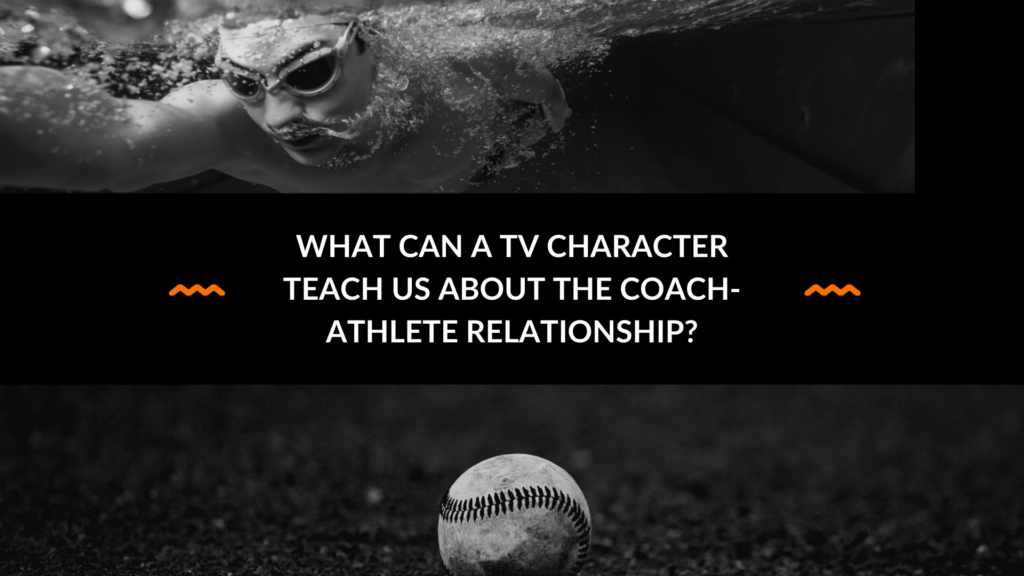I don’t watch a lot of television and when I do, I usually rewatch shows that I really enjoy. I know that sounds pretty boring. However, I’m not afraid to admit that’s my style.
Friday Night Lights (FNL) is a critically-acclaimed show about a Texas town that is centered around its high school football program. If you haven’t seen it, then I’d encourage you to watch it. The characters are complex, the themes are complex, and it is just plain entertaining.
As a mental performance coach working with high school and college athletes, the theme that stands out most is the complicated relationship between the coach and athlete. I speak to my clients often about how to manage this relationship. Young athletes openly struggle with how to manage this relationship for many reasons and it can (negatively) impact their performance.
On FNL, the main character, Coach Eric Taylor is a flawed, yet revered figure in the fictional community of Dillon, Texas. He is revered because of his winning ways. Perhaps more so, Coach Taylor is revered because of the respect that his players have for his genuine interest in making their lives better.
Coach Taylor, despite being highly driven to win state championships, has a strong moral compass that always reverts back to prioritizing people over results. Unfortunately, youth sport in America has become professionalized to the point that young athletes are often treated as chess pieces in the system.
The youth sport culture is largely pay-to-play in the United States. Winning has always been important in sports. It was important to me as an athlete. It’s human nature. However, coaches seem to be prioritizing results over people at all levels, whether consciously or not. In my view, this has led to under development of athletes and increased levels of perfectionism in young people.
One definition of perfectionism is “a personality characteristic that involves setting exceedingly high standards of performance that are accompanied by tendencies for overly critical evaluations of behavior” (Madigan et al., 2019, p. 167).
Perfectionism in sport may be more acute than in other areas of life (Madigan et al.). My sense is that this is because such a large part of a young person’s identity is tied up in sport. I recently had one high school athlete suggest that 60 percent of his identity was as an athlete with remainder left for all other facets of his life: son, sibling, student, partner, etc. I suspect that he isn’t the only high school or college athlete to identify themselves in this way.
I see some level of perfectionism in almost every athlete that I serve. Perfectionism seems to be more of a continuum rather than a binary, yes-no equation. Frankly, the human brain is wired to recognize threats and making a mistake is likely to be viewed as a threat to one’s identity. However, I hypothesize that elevated levels of perfectionism in youth athletes are learned in the athletic context.
Research seems to indicate that the environment in which an athlete resides has a direct impact on the development of perfectionism. My own anecdotal experience as a mental performance coach and a youth sport coach backs this up.
Coaching tends to be a very important element of the motivational environment in sport. Pressure to perform can exacerbate perfectionism and pressure to perform often comes from coaches whose individual fortunes are tied to wins and losses (Madigan et al.; Mageau & Vallerand, 2003).
Ironically, coaches that exert pressure to perform are probably creating the conditions for young athletes to perform less than their best. Athletes that are effectively motivated tend to perform better than those that are not. Coaches have a direct influence over motivating athletes. So, what are the behaviors that the most effective coaches exhibit?
Coaches that facilitate self-determined motivation in young athletes tend to get the best out of their athletes. Self-determined motivation means either that the athlete is finding intrinsic joy just by virtue of participating in their sport or is motivated by incorporating the values that sport brings into their lives (e.g., working hard in sport will help me in my life).
What are some of the things that coaches do to create the ideal motivational climate in order for the coach-athlete relationship to thrive?
Athlete-friendly coaches create choice, but provide structure around it.
Athlete-friendly coaches explain why athletes are doing something and not just giving orders without explanation.
Athlete-friendly coaches express interest in understanding their athletes feelings.
Athlete-friendly coaches attempt to understand their athletes outside of sport.
Athlete-friendly coaches provide feedback that is rooted in the individual’s development rather than simply giving criticism to get a short-term fix.
The coach-athlete relationship is complicated and it is a two-way street. Coaches are often criticized for having a win-at-all-costs mentality. However, let’s be clear – the coach-athlete relationship is a two-way street (Mageau & Vallerand).
While we typically expect coaches to be responsible for the relationship, athletes must be responsible for themselves. I discussed this concept in a conversation with Michigan State University Head Baseball Coach Jake Boss on podcast, The Freshman Foundation. Part of a coach’s responsibility is to teach athletes to take ownership of their athletic career.
I go out of my way to help young athletes adopt empathy for their coaches. Coaches get paid to win games. Coaches have families to feed. Coaches have career aspirations. Coaches are responsible for large numbers of people. If the coach-athlete relationship is not what you want it to be, then you must advocate for yourself in order to build that relationship. As Coach Boss suggested to me, it is tough to ask young athletes to put themselves in a coach’s shoes.
That said, I still believe that the majority of the burden falls on the “grown-ups” so to speak. Being a great coach extends well beyond wins and losses.
Let’s be clear. The fictional coach that I’ve put on a pedestal here is very much human. Wins and losses matter. He can be harsh. He will yell. He punishes players. He often doesn’t supply reasoning for his decisions initially. However, he holds himself accountable for his mistakes and ultimately, he puts the well-being of his players ahead of the desired results on the field.
Here are three suggestions for coaches that want to improve their relationships with athletes:
- Apologize. Coach Taylor is a tough coach. He expects much from his players. However, he will apologize when he is wrong. He models the accountability that he wants to see from his players.
- Trust. Coach Taylor will accept suggestions from players when he knows that’s what is best for the team. This might be input on a personnel decision or a play call. Allowing players the room to express themselves and respecting their input goes a long way to building a strong two-way relationship.
- Care. Over the course of many fictional years, Coach Taylor shows up at his players’ homes to address an issue that extends beyond on-the-field performance. Coach Taylor provides support through domestic troubles, hands-on help with the recruiting process, or just showing up to apologize for a poor choice.
What else do you think a coach can do to improve their relationship with young athletes?
I’d love to hear your thoughts.
References
Madigan, D.J., Curran, T., Stoeber, J., Hill, A.P., Smith, M.M., & Passfield, L. (2019). Development of perfectionism in junior athletes: A three-sample study of coach and parental pressure. Journal of Sport and Exercise Psychology, 41, 167-175.
Mageau, G.A. & Vallerand, R.J. (2003). The coach-athlete relationship: A motivational model. Journal of Sports Sciences, 21, 883-904.


Hi! Someone in my Myspace group shared this site with us so I came to check it out. I’m definitely loving the information. I’m bookmarking and will be tweeting this to my followers! Outstanding blog and terrific design.
Использование приложений OTT. Кино фильмы смотреть бесплатно в хорошем качестве.
Онлайн Торрент Телевидение online
TV channel.
Cмотрите онлайн ток-шоу и русские сериалы в HD.
Видео-фильмы из категории для просмотра online..
Тут смотреть онлайн в хорошем качестве бесплатно фильмы.
2022, Россия. Смотреть онлайн.
Кино и сериалы. Буду смотреть..
Хотя филм.
Смотрите фильмы для всей семьи в лучшем онлайн-сервисе
президент україни
what happened in bucha
Вышка
Смотрите фильмы онлайн на вашем iPad.
Фильм Фільм Бетмен (2022) онлайн українською мовою в HD.
Смотреть фильм онлайн бесплатно в хорошем качестве.
Психолог онлайн. Консультация Психолога онлайн – 5348 врачей, 3974
отзывов.
stat
stat
Ukraine
фильм онлайн бесплатно
смотреть онлайн фильмы сейчас
сериалы онлайн сваты
602
руторг фильмы смотреть онлайн
Лучше звоните Солу 9 серия смотреть онлайн бесплатно
Мир Дикого Запада 4 сезон 4 серия смотреть онлайн
пацаны 3 сезон 4 смотреть онлайн бесплатно